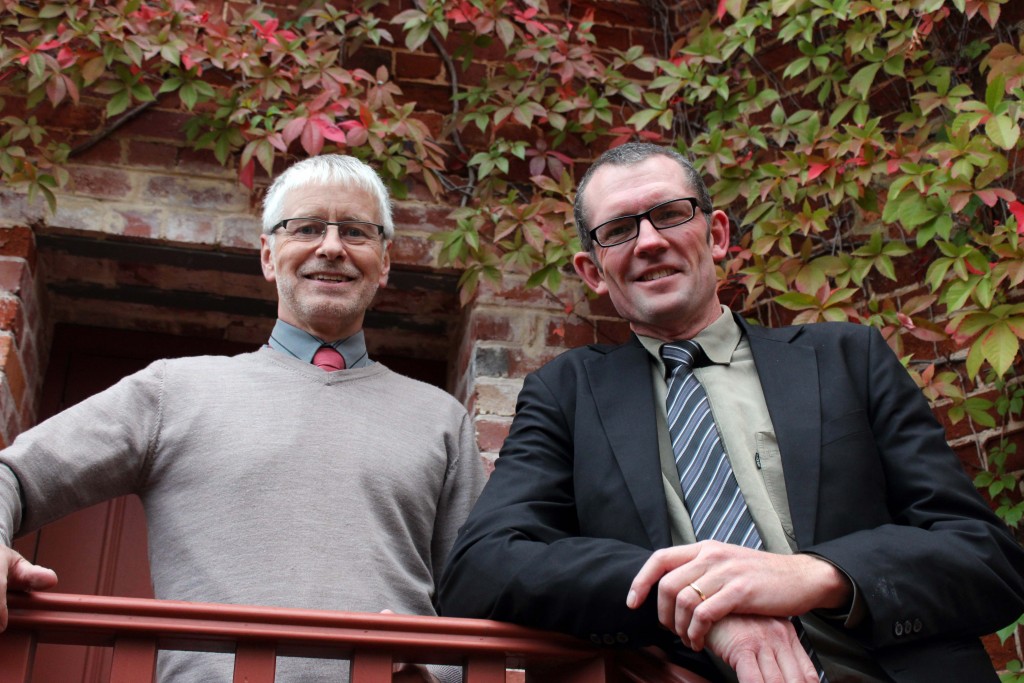
The University of Notre Dame Australia and Fiona Wood Foundation last week launched an Australia-first postgraduate program to ensure health care practitioners are well-equipped to provide scarless healing in mind and body of the nation’s 200,000 yearly burn victims.
A suite of postgraduate courses, available at Graduate Certificate, Graduate Diploma and Master’s levels in Burn and Trauma Rehabilitation Management, will begin to be offered at Notre Dame for Semester 2 study in 2015. The course is open to eligible students from across Australia and overseas.
The Burn and Trauma Rehabilitation courses will be delivered through the new Burn Injury Research Node, established through collaboration between the Fiona Wood Foundation, Notre Dame’s School of Physiotherapy, Fremantle, and the University’s Institute for Health Research.
Based on the premise that rehabilitation starts at the time of injury, the course builds on the local expertise in the area of burn, plastic surgery and trauma management and rehabilitation established by the Fiona Wood Foundation and the clinical work and collaborations of the Burn Unit at Fiona Stanley Hospital.
The course is designed to equip health care providers with essential skills and knowledge to make a positive impact from the first moment they touch a patient after injury to minimise scarring in mind and body to, ultimately, enhance post-injury outcomes.
“Burns are a global health issue which can cause long-term personal, psychological and social trauma for survivors, their families and the broader community. It is our responsibility as health professionals to take all necessary steps to learn today in order to make tomorrow better and prevent any further suffering in those individuals who are coming to grips with their life-changing circumstances,” notes Winthrop Professor Fiona Wood, Director of the Adult State Burn Service of Western Australia and former Australian of the Year.
Professor Peter Hamer, Dean of the School of Physiotherapy, says the University is delighted to be able to offer these important courses of study so Australia’s health care practitioners can make a positive contribution to the lives of those affected by these unfortunate circumstances.
“The course provides for an advanced level of clinical theory and practical skills developed for the enhanced provision of burn and trauma rehabilitation and improved quality of care through research. It is an ideal program for any physiotherapist, registered nurse, exercise physiologist and other health care professional looking to broaden their skill set in this important and burgeoning area of need,” Professor Hamer said.
Enrolled students will receive comprehensive research learning opportunities in a number of core areas, including pathophysiology of burn and trauma healing, body image and scar management and ethical issues in professional life. Master’s students will also undertake a quality assurance research project in their final year of study.
Head of the Burn Injury Research Node, Associate Professor Dale Edgar, said this was an important initiative for the University and the Australian community to improve treatment outcomes in burns and patients who suffered traumatic injuries.
”The principle of each nested degree is to focus graduates on patient-centered care. In doing so, I will present the course unashamedly to challenge traditional treatment models and aim to empower clinicians of any discipline to make a positive contribution in their local environment, regardless of resources or team structure,” Associate Professor Edgar said.
“The course extension tasks and content will unpack and encourage new paradigms in clinical behaviour during rehabilitation, based on outcome measurement and evidence derived from clinical research.”